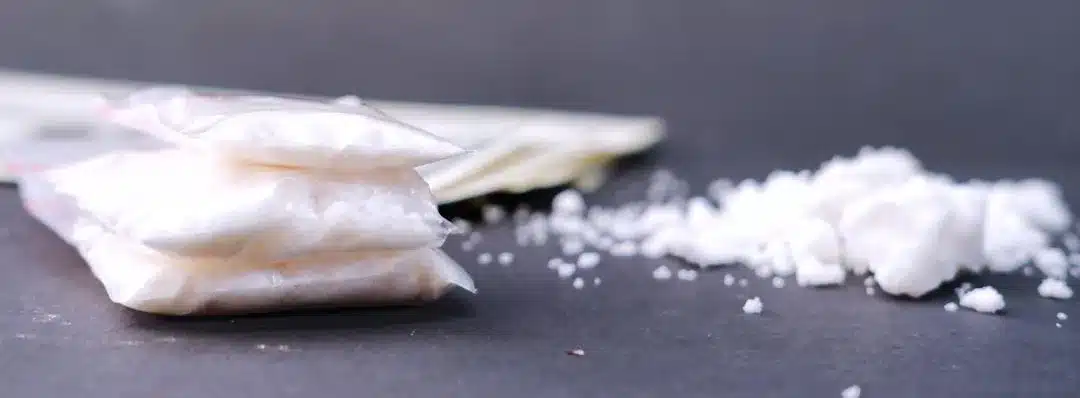Looking at the Lethal Potential of Cocaine and Crack Use
If you or a loved one are struggling with cocaine use, it’s all too easy to get caught up in the cycle and not realize the damage it does. The truth is, that cocaine abuse is a significant health problem worldwide, leading to heart attacks, stroke, and even death.
The question isn’t only, can cocaine kill you, it’s about how the short and long-term impacts of chronic cocaine abuse can eventually cause catastrophic effects on your body. Ultimately, repeated use can and will lead to life-threatening symptoms and consequences.
Read on to learn everything you need to know about the side effects and dangers of cocaine use. You’ll also learn more about finding a cocaine addiction treatment program.
Getting Started: An Overview of Cocaine
Cocaine is a powerful and addictive stimulant that’s been used for thousands of years in South America, originating from the coca plant. Well over 100 years ago, the purified form of cocaine was isolated from the plant.
It was used as the main ingredient in various tonics and elixirs to treat illnesses like coughs and colds in the 1900s. It was even used as a local anesthetic during surgeries.
Since then, research has shown that cocaine is a highly addictive and dangerous drug that impacts the brain, leading to permanent changes if used long-term.
How Do People Typically Use Cocaine?
One of the most common ways to use cocaine is by snorting the powder form through the nose.
It’s also popular to smoke cocaine in the form of a rock crystal. You may hear this referred to as “freebase cocaine.” With freebase cocaine, the hydrochloride is removed. Freebase cocaine can also be more dangerous since it’s pure cocaine not cut with other substances.
On the other hand, crack is formed when cocaine is combined with baking soda and heated until it hardens.
You can also find water-soluble versions of cocaine primarily used for injection directly into a vein.
How Does Cocaine Impact the Brain?

Using cocaine can cause long-term changes in your brain due to the way it impacts the neurotransmitters. Cocaine specifically impacts the dopamine neurotransmitter which is like the “feel good” chemical of the brain.
Dopamine is responsible for feelings of pleasure, motivation, and satisfaction. It also plays a role in mood, memory, sleep, concentration, and other body functions like movement.
When you take a stimulant like cocaine, you get an initial rush of euphoria as it causes your brain to release dopamine. Cocaine does this by binding to the dopamine receptors, causing a buildup of dopamine which contributes to the euphoric effects of cocaine.
People continue to chase this euphoric feeling which leads to cocaine abuse and ultimately cocaine addiction. This is because, over time, your brain becomes less sensitive to the drug. It takes more and more cocaine to achieve the same high. Over time, your brain becomes ‘wired’ to expect the drug.
If you suddenly stop using cocaine, it can cause a dopamine crash which can lead to low mood and cravings. All of this leads to a vicious cycle of use.
Getting to Know the Short-Term Effects of Cocaine
The effects of cocaine occur immediately and it only takes a single dose of cocaine to feel the impact. Most of the effects you feel involve stimulant effects that speed up your body functions.
- Dilated pupils
- Increased body temperature
- Increased heart rate
- Increased blood pressure
- Irritability
- Anxiety
- Trouble sleeping
- Restlessness
- Panic attacks
Some people can experience an intense high which may cause bizarre or violent behavior. It’s also possible to experience tremors, muscle twitches, and vertigo.
Cocaine also has pleasant short-term effects which involve happiness, excitement, increased alertness, and euphoria. Many people feel less mental or physical pain. This high feeling lasts up to 30 minutes which often causes people to take other drugs or alcohol.
As this high wears off, you’ll begin feeling symptoms that include exhaustion, depression, and mood swings.
Now for the Long-Term Damage Done by Cocaine

As your brain becomes more dependent on the presence of cocaine, you’ll start to experience more negative side effects when you’re not using. In most cases, these side effects occur as physiological and psychological changes such as:
- Anxiety
- Depression
- Nightmares
- Difficulty thinking and concentrating
- Increased appetite
- Exhaustion
- Restlessness
Some people may also have suicidal tendencies especially if they use cocaine regularly. This is because you can begin experiencing unpleasant withdrawal effects like cravings and low mood when you don’t have cocaine in your system.
For this reason, anyone withdrawing from cocaine needs medically assisted detox and rehab to help lessen these impacts.
Can Cocaine Kill You? The Most Common Ways
Now that you understand more about the short and long-term effects of cocaine, you’ll be able to understand how cocaine can have deadly effects. The first and most obvious way cocaine can kill you is by an overdose.
Cocaine Overdose
Taking too much cocaine can result in a cocaine overdose. The problem with this is a lethal dose of cocaine is different for everyone. Overdoses are more likely in people with underlying health conditions and a higher tolerance.
In addition, the purity of the cocaine you use plays a huge part. Many times cocaine is “cut” with other substances like flour, powdered milk, or other agents to use less cocaine and make more money. Sometimes it’s cut with dangerous opioids like fentanyl that highly intensify the effects leading to overdose.
Overall the cycle of addiction means continuing cocaine use can increase your chances of overdose. Entering into a rehab center can break this cycle for good.
Cocaine and Infectious Diseases
People who use cocaine are at higher risk for infectious diseases like hepatitis B, C, and HIV. This is mostly from people injecting cocaine since needles can lead to people contracting these diseases. This is especially the case if you’re depending on used needles.
In addition, even people not using needles are at higher risk since cocaine impairs judgment. This makes people more likely to engage in risky sexual behaviors.
Research shows that people who have HIV and use cocaine have patterns of accelerated HIV infection. They also tend to have an advanced disease when it’s diagnosed, along with liver complications like chronic liver disease.
This is because cocaine impairs the immune system and promotes HIV virus replication. This also leads to serious infections like pneumonia.
Long-Term Health Complications

Long-term use of cocaine can cause severe health consequences. Long-term physical effects include headaches, frequent nose bleeds, and a higher risk of lung damage. Since cocaine is a stimulant it has cardiac effects, putting you at risk of heart attack. It can also lead to an increased risk of stroke and organ failure.
Many people also have problems sleeping and the stimulant effects can cause weight loss. Taking stimulants like cocaine can cause people to either not eat enough or have a poor diet overall.
This is because when you’re on stimulants, that’s the primary focus. When you do eat, you’re much more likely to choose fast food or other foods that don’t provide the nutrition your body needs.
This lack of nutrients causes you to have less energy overall and also puts you at more risk for chronic diseases. You’re also less likely to drink enough water which puts you at risk for dehydration.
For these reasons, our addiction treatment programs focus on nutrition as a part of the recovery process. As you learn to fuel your body with healthy foods, you’ll feel more energized overall. Focusing on a healthy diet is an essential part of self-care, which helps you stay sober long-term.
Cocaine and Mental Health Disorders
Mental health disorders and substance use disorders have a known connection, often occurring together. This is because having mental health problems can sometimes lead to alcohol and drug use. In many cases, people take substances as a form of self-medication to alleviate the symptoms of the mental health disorder.
Also, people with early exposure to trauma or a history of addiction in their family are more likely to use substances.
A diagnosable substance use disorder (or SUD) involves a clear pattern of substance use that continues despite any negative consequences. These consequences include missing work or neglecting family responsibilities.
People with SUD will try to cut back but not be able to due to intense cravings and urges. If you have SUD, you’ll need more and more of the substance to get the desired effect and put yourself in risky situations to get it.
For these reasons, treatment programs address these co-occurring mental health disorders with individual and group therapy. Therapies like cognitive behavioral therapy (CBT) help people to become aware of negative thinking cycles that lead to addiction.
CBT also teaches coping skills that help you deal with stressful situations that would normally trigger substance use.
Get Cocaine Addiction Treatment Today

Can cocaine kill you? Now you know the answer to this question, it’s time to take the next step in your journey.
Purpose Healing Center is a leading alcohol and substance abuse treatment center in Arizona. We offer personalized addiction treatment programs that allow you to improve your health and learn behaviors that help you stay in recovery long-term.
Our drug and alcohol abuse treatment programs include medical detox, inpatient rehab, intensive outpatient rehab, and partial hospitalization program. We believe in holistic treatment that addresses your physical, emotional, and spiritual needs which allows you to completely transform your physical health and behaviors.
Make sure to contact us today to get more information about our treatment programs, and get started on your recovery journey.



